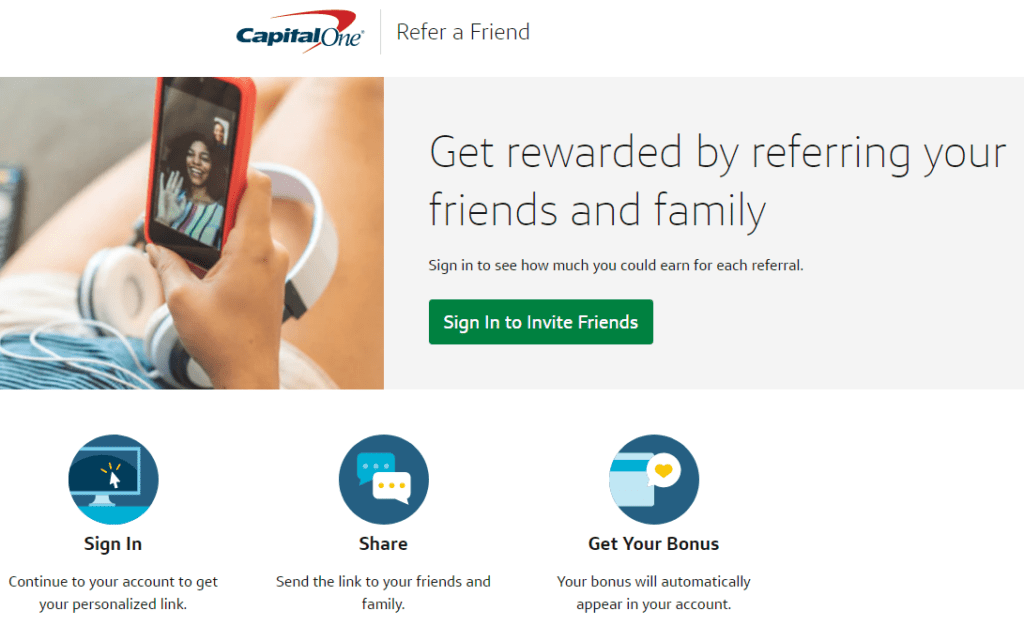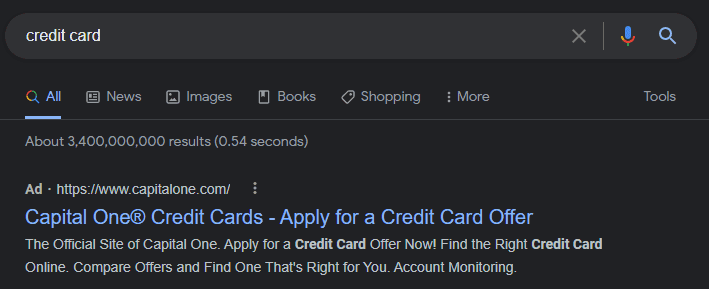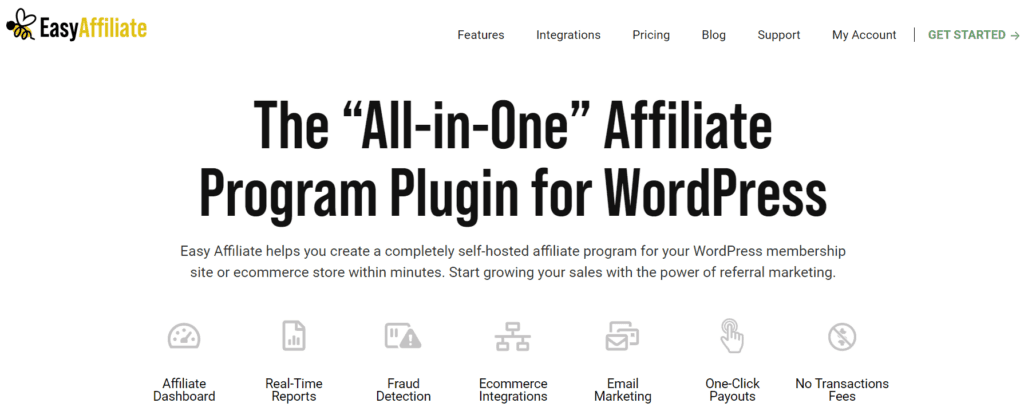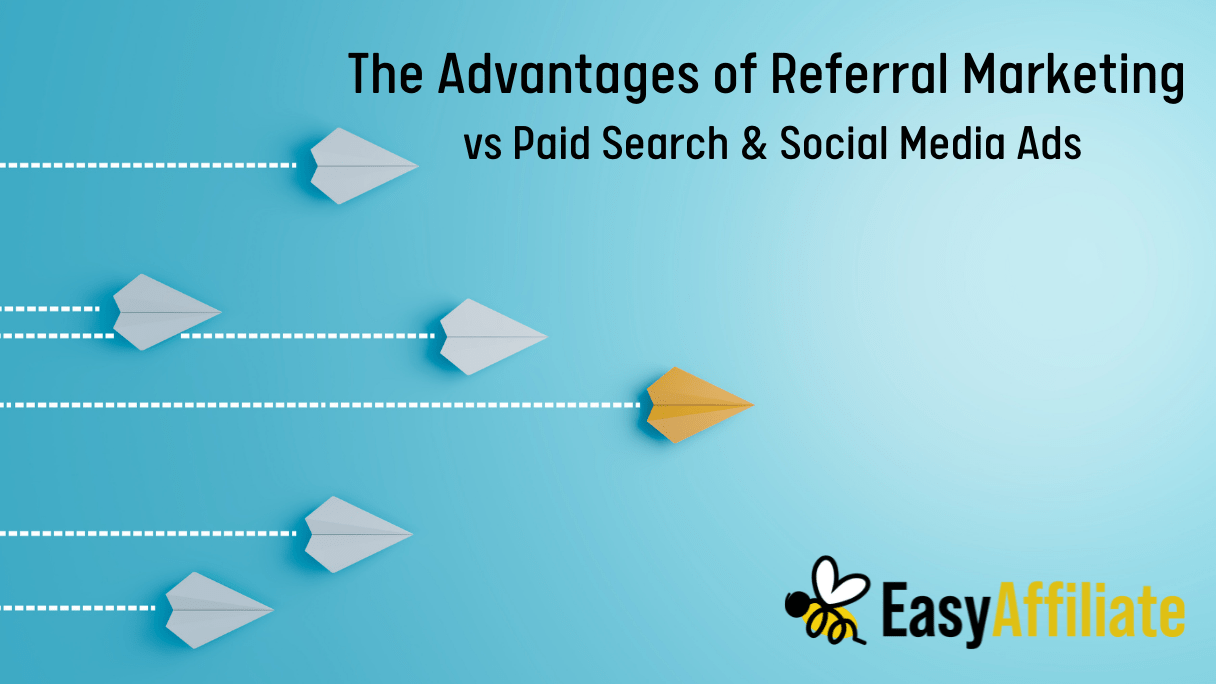Table of Contents
When it comes to marketing, choosing how to allocate your time and money is rarely an easy decision. It can often feel like you're throwing money into the wind in hopes that it will attract new customers.
If you're looking for a better strategy, referral marketing is a tried-and-true method of growing your customer base without the risks of paid search and social media ads. Referrals are an indispensable (and low-cost) way to expand your reach and better connect with your audience.
In this article, we'll explore what referral marketing is and discuss its many advantages. We'll then compare referral marketing vs paid search, and discuss the benefits of having referrals at the core of your marketing strategy. Let’s get started!
An Introduction to Referral Marketing
Referral marketing is a classic strategy for reaching new customers and is something you have almost certainly encountered. In short, referral marketing is when a business convinces an existing customer to recommend them to other potential customers.
Affiliate marketing is a similar concept, but referral marketing is more focused on your customers referring their friends and family, rather than strangers.
A key component of referral marketing is providing the proper motivation. If your content is outstanding, that may be all the motivation needed to encourage organic referrals.
However, in most cases, a gentle nudge or reminder can mean the difference between one happy client or a steady stream of new customers.
Common incentives for referrals include:
- Discounted prices
- A credit for a future transaction
- Free gifts or rewards
Here is an example from Capital One:

In many cases, both the referrer and the referred are rewarded when a certain action is taken, such as opening a new account. For effective referral marketing, it's important to have a balanced incentive that motivates both the referrer and the referred at a worthwhile customer acquisition cost to the company.
3 Key Advantages of Referral Marketing
At this point, you may be wondering if referral marketing is right for your business. To help you make that decision, let's look at three key advantages this strategy offers.
1. Control
One of the biggest advantages of referral marketing is that it offers more control and flexibility than paid search and social media ads. For example, when you purchase search and social ads, you’re often paying per click. While this can generate traffic, it does not guarantee (or always increase the odds of) conversions.
With referral marketing, you control both the incentive and the action required to earn it. For example, T-Mobile offers a $50 prepaid MasterCard when current customers refer friends or family to open a new account:

Unlike paying per click, the return on investment (ROI) for a referral program such as this is much more predictable and can be adjusted as needed.
If the cost ends up being too high, for example, the reward could be reduced to $25. On the other hand, if the incentive is not enough to attract many new account openings, the dollar amount could be raised, or the new account holder could also be incentivized.
2. Momentum
Another strength of referral marketing is that it can grow exponentially over time. For example, if a customer refers two friends, who each refer two coworkers, who all refer two family members, that first customer has generated 14 new leads!
Although you can’t count on every customer for a referral, a good referral marketing program requires little work once implemented. Plus, it can have a multiplicative effect over time.
Once you have a well-balanced referral program in place, the only real cost of those new customers is the incentive you choose. This means that any customers from organic sources, paid ads, or other referrals could refer even more new customers, enhancing those marketing avenues for free.
3. Connections
A referral program, by its very nature, encourages personal connections and a sense of community. Ideally, the referral process will include a conversation between you and the customer, allowing you to connect with them and providing an opportunity to build trust and loyalty.
In addition, the referral process inherently gets people talking about your business. Whether it’s online or out shopping, getting people talking about your company is never a bad thing.
These conversations can turn customers into advocates and motivate them to leave positive reviews, provide meaningful testimonials, and share your content on social media. Once again, this can bolster the overall impact of your marketing campaigns.
Why Referral Marketing Is Beating Paid Search and Social Media Ads
Before Google, phone books, or even newspaper ads, businesses attracted new customers through word of mouth. While paid search and social media ads are a part of any comprehensive marketing strategy, they can’t replace the effectiveness of referral marketing and the many positive side effects that come with it.
Paid search ads might get your website to show up in relevant searches, but this may or may not amount to actual conversions or clicks. The same applies to social media ads, which are competing with a deluge of other content for attention.

With referral marketing, you empower your customers to advocate for your business, which fundamentally changes the dynamic of the relationship. Rather than a company and its clientele, you can create a community that drives new business, to the benefit of everyone involved.
Customers are the lifeblood of any business, so why not involve them in your marketing strategy as proponents, rather than just as targets? While most forms of advertising are limited in reach or delivery, referral marketing runs on a network of people, limited only by their motivation to recommend you, where any single person could be the match that spreads your message like wildfire.
How to Get Started with Referral Marketing
At this point, you're probably eager to get your new referral marketing campaign off the ground. If so, there are a few approaches you can take.
The first thing you'll want to do is create a clear plan. This means deciding what you want to reward customers for, how you will reward them, and how you will spread the news about your new program.
It's also worth finding a tool that will help you implement your referral marketing strategy. It can be difficult (and time-consuming) to track referrals and rewards manually, so you'll want to automate as much of the process as possible.
For that, check out our own Easy Affiliate plugin:

Although designed primarily for building affiliate programs, this plugin also makes it easy to implement your own referral marketing campaign. Setting it up is simple, and you'll be able to track all of your referrers and find out how your campaign is performing over time.
Conclusion
While marketing is an ever-changing game, referrals are one of the oldest and most reliable strategies for expanding your audience. Best of all, it's simple to implement a referral program using a tool such as Easy Affiliate.
With a well-designed referral program, you can benefit from:
- Predictable customer acquisition cost
- Marketing momentum that builds over time
- Stronger customer connections
Do you have any effective referral strategies that consistently bring new business to your doorstep? Share your tips in the comments section below!
If you liked this article, follow us on Twitter, Facebook, Pinterest, and LinkedIn. And don't forget to subscribe to our newsletter



Leave a Reply